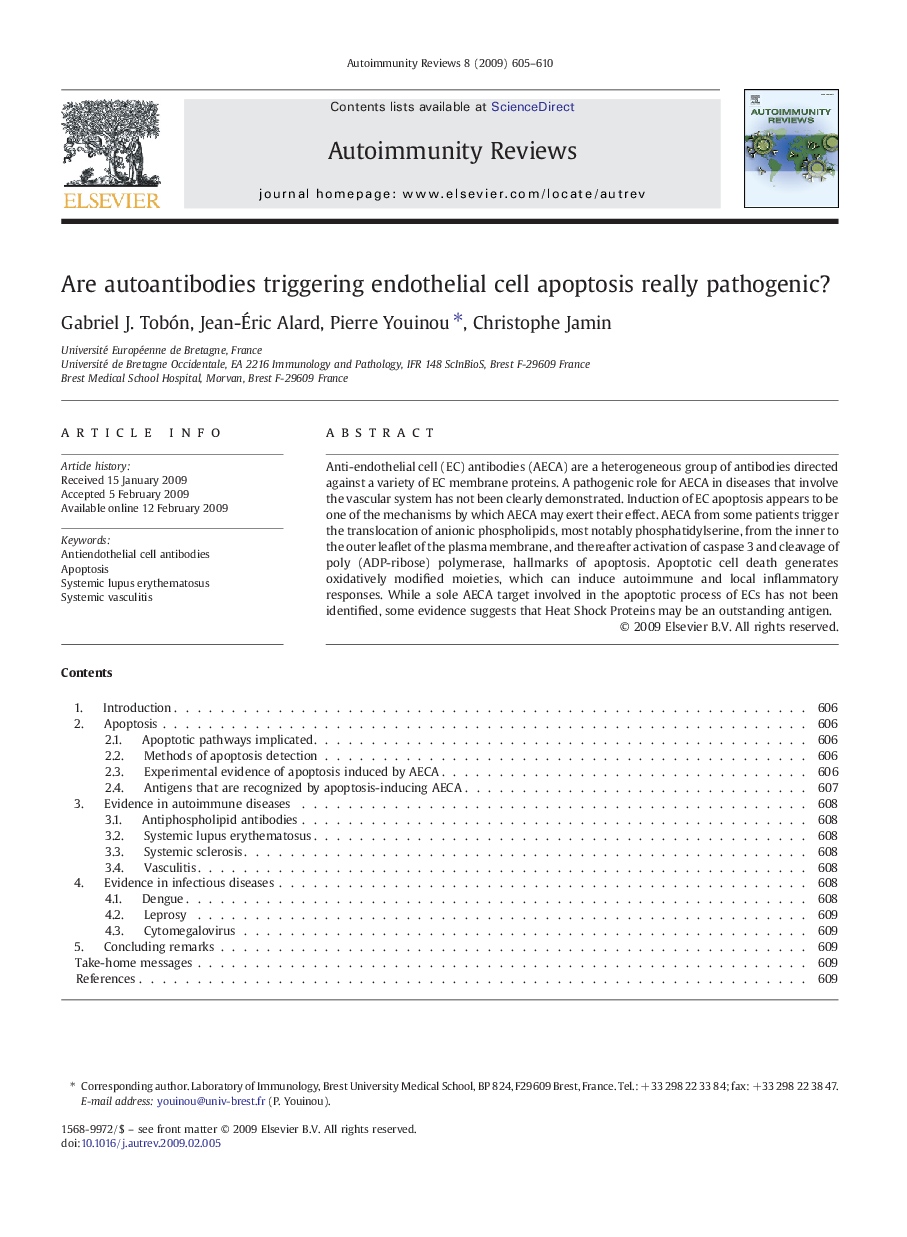| Article ID | Journal | Published Year | Pages | File Type |
|---|---|---|---|---|
| 3342300 | Autoimmunity Reviews | 2009 | 6 Pages |
Anti-endothelial cell (EC) antibodies (AECA) are a heterogeneous group of antibodies directed against a variety of EC membrane proteins. A pathogenic role for AECA in diseases that involve the vascular system has not been clearly demonstrated. Induction of EC apoptosis appears to be one of the mechanisms by which AECA may exert their effect. AECA from some patients trigger the translocation of anionic phospholipids, most notably phosphatidylserine, from the inner to the outer leaflet of the plasma membrane, and thereafter activation of caspase 3 and cleavage of poly (ADP-ribose) polymerase, hallmarks of apoptosis. Apoptotic cell death generates oxidatively modified moieties, which can induce autoimmune and local inflammatory responses. While a sole AECA target involved in the apoptotic process of ECs has not been identified, some evidence suggests that Heat Shock Proteins may be an outstanding antigen.
